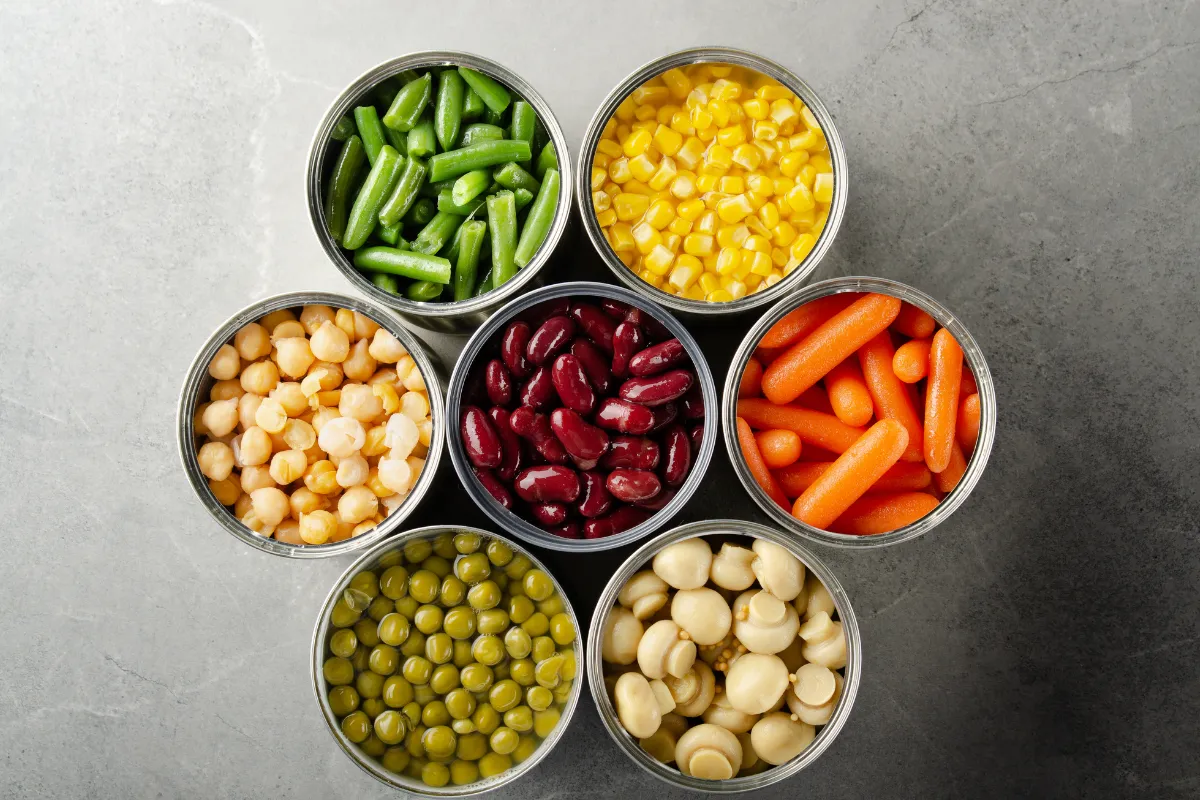In the world of convenient and nutritious pantry staples, canned beans shine as a versatile and protein-packed option.
But not all beans are created equal.
If you’re looking to boost your diet with the healthiest canned beans, you’re in the right place.
Let’s explore the top choices according to dietitians and why they deserve a spot in your kitchen.
Understanding the Nutritional Value of Canned Beans
Breaking Down the Basics
Before diving into the healthiest options, let’s understand why canned beans are a nutritional powerhouse.
Packed with fiber, protein, vitamins, and minerals, beans offer a range of health benefits, from supporting digestion to regulating blood sugar levels.
The Convenience Factor
Canned beans provide a convenient solution for busy individuals.
They are pre-cooked and ready to use, saving time in the kitchen without compromising nutritional value.
The Healthiest Canned Beans
1. Chickpeas

Chickpeas, also known as garbanzo beans, are a dietitian favorite.
Rich in fiber, protein, and essential vitamins, they contribute to heart health and help with weight management.
2. Black Beans

Black beans are a versatile option loaded with antioxidants.
They support immune function and provide a healthy dose of iron, making them an excellent choice for vegetarians.
3. Kidney Beans

Kidney beans are praised for their high fiber content, promoting digestive health.
They also deliver a substantial amount of folate and manganese.
4. Cannellini Beans

Cannellini beans, with their creamy texture, are a fantastic source of protein and fiber.
They make a great addition to salads, soups, and pasta dishes.
5. Pinto Beans

Pinto beans offer a rich source of protein and iron.
They’re known for their ability to stabilize blood sugar levels, making them a valuable choice for those managing diabetes.
How to Choose the Best Canned Beans
Check the Sodium Content
While canned beans are convenient, some may contain high levels of sodium.
Opt for low-sodium or no-salt-added varieties to control your salt intake.
Look for BPA-Free Cans
Bisphenol A (BPA) is a chemical found in some can linings.
Choosing BPA-free cans ensures you’re avoiding potential exposure to this compound.
Read the Ingredient List
Choose canned beans with minimal ingredients. Ideally, the only ingredients listed should be the beans, water, and perhaps a small amount of salt.
Incorporating Canned Beans into Your Diet
Quick and Easy Salad
Create a nutritious salad by mixing chickpeas, black beans, and kidney beans with fresh vegetables, olive oil, and your favorite herbs.
Hearty Bean Soup
Prepare a comforting bean soup by combining cannellini beans, pinto beans, and diced tomatoes.
Add spices for extra flavor and warmth.
Common Myths About Canned Beans
Myth: Canned Beans Lack Nutrients
Fact: Canned beans retain most of their nutritional value. In some cases, the canning process may even increase nutrient availability.
Myth: Canned Beans Are High in Preservatives
Fact: Canned beans typically contain minimal preservatives.
Choosing reputable brands can ensure you’re getting a quality product.
Conclusion
Incorporating the healthiest canned beans into your diet is a simple yet effective way to enhance your nutrition.
From chickpeas to pinto beans, these pantry staples offer a range of flavors and benefits.
Remember to choose wisely, considering factors like sodium content and can lining.
With the right knowledge, canned beans can be a valuable addition to your journey toward a healthier lifestyle.
FAQs About Canned Beans
Q1: Can I use the liquid from canned beans?
A1: Yes, the liquid, known as aquafaba, can be used as an egg substitute in various recipes, such as meringues and vegan mayonnaise.
Q2: How do I reduce the gas-producing effect of beans?
A2: Soaking dried beans before cooking and rinsing canned beans thoroughly can help reduce gas-producing compounds.
Q3: Are canned beans as nutritious as dried beans?
A3: While there may be slight differences, canned beans still retain a substantial amount of nutrients. It’s a matter of personal preference and convenience.
Q4: Can I freeze canned beans?
A4: Yes, you can freeze canned beans.
Transfer them to an airtight container, leaving some space for expansion, and store for up to six months.
Q5: Are canned beans suitable for a low-sodium diet?
A5: Yes, opt for low-sodium or no-salt-added varieties to fit a low-sodium diet without compromising on nutritional benefits.

